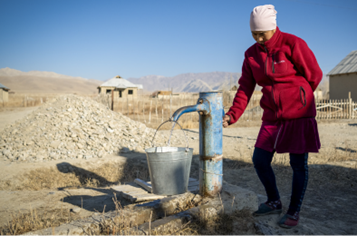What is microfinance for ?
- Nov 8, 2013
- 4 min read
I am not a regular blogger (does the noun exist ? It sounds slightly inappropriate) but I have succumbed to an invitation to share some hasty and ill-considered thoughts with a wider readership than myself. And, as is often the case, the subject is microfinance; I know quite a lot about it, if knowing means writing books about it, criticising it, directing and rating it, but like just about everyone who reads this note, I have never actually used it. There must be few other services whose suppliers and commentators actually know so little about it, because they have never had to use it.
That in itself says something about microfinance, it is very much a ‘we’ and ‘they’ business, but the question I have been asked to discuss is whether it is really a business at all. Do people start and run and finance microfinance institutions, to do good, to help the poor, or to do well, to make money? And, regardless of what they actually do, what ought they do?
There is a worldwide trend for just about every activity to be treated as a business, whose over-riding objective is to make a profit for its shareholders and to maximise the earnings of its senior management (and, in the case of sport, its players). Prisoners don’t pay to be in jail, but their jailers are now as likely to be employed by large for-profit international companies as they are by government departments. Sick people don’t pay to be cured, at least in more civilised nations, but clinics, hospitals and so on, and the institutions which manufacture and market the medicines they use, are most certainly for-profit businesses.
So, why should not financial inclusion, or microcredit (that is, microdebt), or financial services for the poor, or ‘lower income market segments’ as they are more likely to be known by the companies which set out to serve them, also be provided by companies which have been set up and are run to make money ? Health service and incarceration providers are paid by governments and are subject to strictly enforced rules as to the standards they are to maintain; there is now a wide range of social performance indicators for microfinance, so perhaps there is no reason for this welfare service to be treated any differently.
But, is microfinance a welfare or a social or public service, like health care or prisons, which can be provided by a for-profit provider but needs to be supported by the state or by donors, because its clients cannot afford to pay full cost, and which needs therefore to be carefully monitored to ensure that it achieves its social objectives ? Or, is it like Wal-Mart, which serves millions of low income people by providing low cost clothing and other necessities, and which also directly and indirectly employs many millions more at wages which they at any rate are willing to accept for want of anything better, but which would be most unlikely to attract government or donor support?
Or is microfinance a rare example of what so many donors are anxious to achieve; a profitable and socially beneficial business which had initially to be subsidised but has now ‘grown up’ and can stand on its own and attract and pay for the staff and finance it needs in order to serve the millions who need it? Is it, to use somewhat unlikely examples, like a soup kitchen or night shelter which had initially to be subsidised but has now grown to a level where its needy clients can afford to pay for it at a rate which enables it to cover all its costs?
There is little doubt that microfinance has generally become a for-profit business, regardless of what its pioneers originally intended, and its recent and likely future growth is almost certain to come mainly from the larger for profit institutions. Impact evaluation of microfinance has itself become a significant and quite profitable industry, and there does not seem to be any definitive evidence that for profit MFIs do any less good, or more harm, that their charitable or government sponsored competitors.
The trend, as in all things, is towards a for-profit approach. There are some notable exceptions, including just about all the MFIs in Bangladesh, which is in a sense the home of microfinance, and the relatively small number of cooperative and community owned institutions which have survived governments’ and NGOs’ efforts to perpetuate their dependency, but microfinance has on the whole been ‘Wal-Martised’, whether we like it or not.
Many of us do not like it, but perhaps we should look at it in the context of the global trend towards commercialisation, which is not altogether a bad thing. We must also recognise that the growth and success of microfinance as it exists today is a function of the perpetuation of poverty, which is a global tragedy. If there were no poor people, there would be no need for microfinance. Its impact, for good and for ill, has been grossly exaggerated, but we should all see it for what it is, a temporary and regrettable expedient, and should look forward to day when microfinance should itself shrink and effectively disappear as we now know it.
author: Malcolm Harper





While it was initially designed Geometry Dash to help the poor through subsidized, mission-based institutions, global trends have pushed microfinance to follow the same commercial logic as many other social services. The article makes it clear that this shift is not necessarily harmful: there is no strong evidence that for-profit microfinance institutions do less social good than charitable or government-supported ones. Instead, microfinance today exists in a gray area between public service and commercial enterprise—similar to healthcare or prisons—where profit-making providers can still deliver social value if properly regulated.